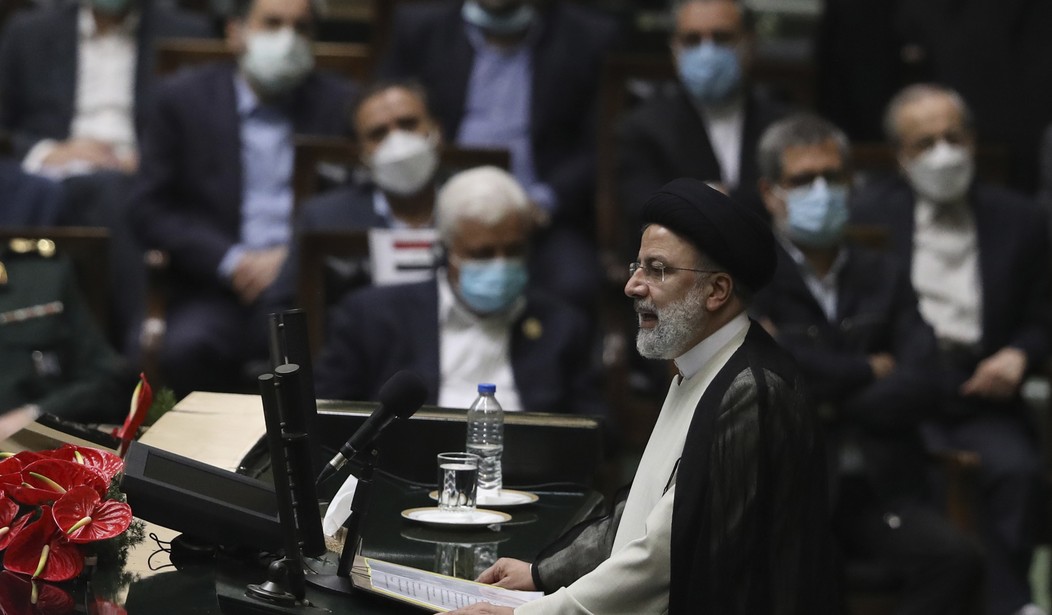Recently, five other former heads of state and I visited France to attend a conference at the headquarters of the National Council of Resistance of Iran. A month earlier, I joined more than 100 politicians and former high-ranking government officials from various countries in signing an open letter that expressed solidarity with Iran’s democratic Resistance movement and reiterated our endorsement of the 10-point plan for Iran’s future which has been presented by NCRI leader Maryam Rajavi.
Our letter emphasized that in the wake of the latest popular uprising in the Islamic Republic, the time has come for the international community to hold Iranian officials for a long list of crimes including the murder of 750 protesters last year, and the systematic execution of roughly 30,000 political prisoners in the summer of 1988.
None of the regime’s leaders have ever been held accountable for the 1988 massacre. They include the current president, Ebrahim Raisi, who in 1988 was a member of the Tehran Death Commission, and the judiciary chief Gholamhossein Mohseni Ejei.
The crackdown on last year’s uprising is a testament to the influence of these career human rights abusers. The same is true of broader repressive trends that have been observed across the Islamic Republic in recent months, such as a rate of executions which threatens to make 2023 the nation’s bloodiest year in roughly a decade. More to the point, the continuation of this and related trends is an indictment of the ineffectual response the international community has offered so far.
As our May letter warned, “Decades of apparent silence and inaction by the international community have helped fuel a culture of impunity in Iran.” That impunity threatens the life of every man, woman, and child who has taken part in pro-democracy demonstrations since last September. That should be reason enough for Western governments to adopt more assertive strategies for dealing with the Islamic Republic. But as I made sure to emphasize in my remarks to the NCRI conference, the regime’s impunity also threatens Iran’s critics and perceived enemies throughout the world.
Recommended
Martin Luther King Jr. once said that “injustice anywhere is a threat to justice everywhere.” Similarly, autocracy anywhere is a threat to democracy everywhere. Since last year’s uprising, the Iranian regime has done a great deal to demonstrate the truth of both of these observations. Raisi and other Iranian officials have been working overtime to expand relations with a number of other autocratic governments and anti-democracy entities. In fact, my visit to the NCRI conference closely coincided with the Iranian president’s visit to three dictatorships in my part of the world: Cuba, Venezuela, and Nicaragua.
History demonstrates the potential consequences of greater coordination between Iran and those countries. In the 1980s and 90s, Iran oversaw the proliferation of terrorist proxies in the Western Hemisphere, leading to devastating incidents such as the bombing of the Argentine-Israeli Mutual Association building in 1994, in which 85 people, including six Bolivians, were killed, and encouraging local populations to live in fear of reprisals for any actions their governments took which opposed the Iranian regime’s interests.
The potential consequences are underscored by what has happened more recently in other parts of the world where Tehran has extended its reach. For the better part of a year, Russia has been routinely deploying Iranian-made drones to attack civilian infrastructure in Ukraine, and now US intelligence is warning that the two countries could have a facility set up in Russia for local production of those same weapons by the end of this year.
Raisi’s visit to Latin America should serve as a dire warning about the possibility of autocrats throughout the world developing tighter and more expansive alliances in opposition to the interests and values of secular democracies. This in turn should encourage those democracies to counter that trend with their own alliances and coordination – including coordination with pro-democracy voices inside the countries in question,
At least where Iran is concerned, the opportunity for that coordination has arguably never been clearer. After the young Kurdish woman Masha Amini was killed by “morality police” last September, the ensuing uprising spread to upwards of 300 cities and towns spanning all 31 Iranian provinces. Slogans like “death to the dictator” spread nationwide with the help of “Resistance Units” affiliated with the NCRI’s main constituent group, the People’s Mojahedin Organization of Iran (PMOI or MEK). Soon, there was global consensus that this was the greatest challenge to the mullahs’ regime since the 1979 revolution.
It is a challenge that the international community could have supported and reinforced, had they offered something other than ineffectual verbal condemnations of the regime’s crackdown on dissent. Yet inexplicably, most Western leaders have chosen conciliation over confrontation, with the White House choosing this moment to pursue a temporary nuclear deal, and with French authorities even going so far as attempting to obstruct plans for an Iranian expatriate rally in Paris, apparently under pressure from the Raisi administration.
Such actions effectively reward the Iranian regime for its human rights abuses while also raising questions about the extent of Western support for the democratic principles guiding Iran’s uprising. Fortunately, with Iran still struggling to restore the status quo in the wake of that uprising, there is still time for democratic leaders to change course, both by enhancing the pressures that have previously imposed on Iran’s theocratic dictatorship and by formally endorsing the pro-democracy opposition movement and Mrs. Rajavi’s ten-point plan for a free republic of Iran.
Mr. Jorge Tuto Quiroga is a former President of Bolivia.

























Join the conversation as a VIP Member